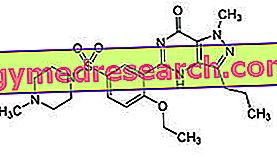The specificity of a diagnostic test is defined as the ability to correctly identify healthy subjects, that is, those not affected by the disease or condition to be identified. If a test has excellent specificity, then the risk of false positives is low, that is of subjects who, despite presenting anomalous values, are not affected by the pathology that is being sought.
HIGH SPECIFICITY = high probability that a healthy subject is negative for the test; = low probability that a healthy subject is positive for the test;
The sensitivity of a diagnostic test is defined as the ability to correctly identify the sick subjects, that is affected by the disease or condition that one intends to identify. If a test has excellent sensitivity, then the risk of false negatives is low, that is of subjects who, although presenting normal values, are nonetheless affected by the pathology or condition they are seeking.
HIGH SENSITIVITY = high probability that a sick person is positive for the test; = low probability that a sick subject is negative for the test.



